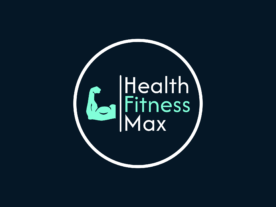
10 Proven Ways to Increase Muscle Mass Naturally
So, you wanna turn heads with your muscle gains? It’s time to ditch the fluff and get down to business. Building muscle ain’t rocket science, but it sure takes some grit and know-how. Strap in because I’m about to drop ten badass tips to help you bulk up like a champ, all while keeping it real.
1. Crush Those Compound Movements
Forget the fancy stuff; stick to the classics. Squats, deadlifts, bench presses – these bad boys hit multiple muscle groups at once, giving you more bang for your buck in the gym. Compound exercises not only build strength but also stimulate muscle growth across large areas of your body, including your legs, back, and chest. This efficient use of time in the gym ensures you’re maximizing muscle engagement and growth potential.
Scientific Backing: Compound exercises are known for their effectiveness because they activate multiple joints and muscle groups simultaneously. Research suggests that exercises like squats and deadlifts are superior for increasing overall muscle mass because they create a more significant anabolic response in the body (1).
Workout Example: Try the following full-body compound routine:
- Squats: 4 sets of 8-10 reps
- Deadlifts: 4 sets of 8-10 reps
- Bench Press: 4 sets of 8-10 reps
- Pull-Ups: 3 sets of 8-12 reps
- Rows: 3 sets of 8-12 reps
Adjust the weights according to your fitness level, aiming for a challenging yet manageable resistance.
2. Lift Heavy, Lift Proud
You wanna grow? You gotta lift heavy, plain and simple. Aim for weights that make you grunt a little but still allow you to crank out 6-12 reps with decent form. Progressive overload is key here – consistently challenging your muscles with heavier weights over time encourages them to adapt and grow stronger. This principle applies whether you’re using free weights, machines, or bodyweight exercises.
Scientific Backing: The concept of progressive overload is fundamental in hypertrophy training. Studies have shown that lifting heavy weights with fewer repetitions can lead to significant increases in muscle size and strength (2).
Workout Example: Implement a progressive overload strategy:
- Week 1-2: 3 sets of 10 reps at a moderate weight
- Week 3-4: 3 sets of 8 reps at a heavier weight
- Week 5-6: 3 sets of 6 reps at your maximum weight
This cycle keeps your muscles constantly adapting and growing.
3. Form Is King
Don’t be that dude swinging weights around like a maniac. Focus on proper form to target those muscles effectively and avoid ending up on a gym fail video. Using correct form not only prevents injuries but also ensures that you’re engaging the intended muscles optimally.
Scientific Backing: A study by Schoenfeld et al. (2010) highlights the importance of proper technique in maximizing muscle activation and minimizing injury risk. Maintaining controlled movements during exercises helps to recruit the right muscle fibers, leading to better growth outcomes (3).
Tips for Perfect Form:
- Squats: Keep your back straight, chest up, and knees aligned with your toes.
- Deadlifts: Engage your core, keep the bar close to your body, and lift with your legs, not your back.
- Bench Press: Lower the bar to your chest with control, keeping elbows at a 45-degree angle.
Gradually increase the weight as you become more comfortable with the exercise and maintain proper technique throughout.
4. Chow Down on Protein
Protein is your muscle-building BFF. Load up on lean meats, eggs, Greek yogurt – you name it. If it clucks, moos, or oinks, chances are it’s packed with protein goodness. Protein provides the building blocks (amino acids) necessary for muscle repair and growth. Aim to consume protein-rich foods throughout the day, especially around your workout times, to support muscle recovery and synthesis. A general guideline is to consume about 1.2 to 2.2 grams of protein per kilogram of body weight per day, depending on your activity level and goals.
Scientific Backing: According to the International Society of Sports Nutrition, consuming adequate protein is crucial for muscle protein synthesis. Research indicates that a higher protein intake is associated with greater muscle mass gains during resistance training (4).
Protein-Rich Foods:
- Chicken Breast: 31g of protein per 100g
- Eggs: 6g of protein per egg
- Greek Yogurt: 10g of protein per 100g
- Quinoa: 8g of protein per cup
Incorporate these into your meals and snacks to meet your daily protein goals.
5. Carb Up, Buttercup
Carbs are your body’s fuel for those beastly workouts. Stick to complex carbs like oats, sweet potatoes, and brown rice to keep your energy levels steady throughout the day. Complex carbohydrates provide sustained energy that supports intense workouts and aids in muscle recovery afterward. They also replenish glycogen stores in your muscles, which are depleted during exercise.
Scientific Backing: Carbohydrates play a vital role in muscle recovery and performance. Studies have shown that consuming carbs post-workout can enhance glycogen resynthesis and improve muscle recovery (5).
Pre-Workout Meal Example:
- Oats with Banana and Almonds: Provides sustained energy for your workout
- Sweet Potato and Chicken Breast: Fuels your body for an intense session
Include carbs in your pre-workout meals and post-workout snacks to optimize performance and recovery.
6. Embrace the Fat
Not all fats are created equal, but the good ones are crucial for muscle growth. Avocados, nuts, and olive oil are your go-to pals for keeping those hormones in check and your gains on point. Healthy fats, such as monounsaturated and polyunsaturated fats, play a vital role in hormone production and overall health. They help regulate testosterone levels, which is essential for muscle growth and maintenance.
Scientific Backing: A study published in the Journal of Applied Physiology found that diets rich in healthy fats are associated with increased testosterone levels, which can enhance muscle growth and repair (6).
Sources of Healthy Fats:
- Avocado: Adds healthy fats to your meals
- Almonds and Walnuts: Snack on these for a healthy fat boost
- Olive Oil: Use in cooking or as a salad dressing
Incorporate sources of healthy fats into your meals to support your muscle-building efforts and overall well-being.
7. Snooze Your Way to Gains
Believe it or not, getting enough quality sleep is a critical component of your muscle-building journey. When you’re snoozing, your body is hard at work repairing damaged tissues and building new muscle fibers. Aim for 7-9 hours of uninterrupted sleep each night to give your muscles the time they need to recover and grow.
Scientific Backing: Research consistently shows that inadequate sleep can impair muscle recovery and diminish muscle protein synthesis, which is essential for muscle growth. According to a study published in the journal Sports Medicine, sleep is vital for optimizing athletic performance and ensuring effective recovery from exercise (7).
Tips for Better Sleep:
- Maintain a Regular Sleep Schedule: Go to bed and wake up at the same time every day to regulate your body’s internal clock.
- Create a Sleep-Conducive Environment: Make your bedroom a sanctuary by keeping it cool, dark, and quiet.
- Reduce Screen Time Before Bed: Minimize exposure to screens and blue light at least an hour before bedtime to promote the production of melatonin, the sleep hormone.
Prioritizing sleep not only helps your muscles grow but also boosts your overall energy levels, mood, and focus.
8. Guzzle H2O Like It’s Your Job
Staying hydrated is crucial for maintaining peak performance and supporting muscle growth. Dehydration can lead to decreased strength, endurance, and recovery, making it a significant enemy of muscle gains. Keep a water bottle handy and sip on water consistently throughout the day to keep your muscles well-hydrated and functioning optimally.
Scientific Backing: Research has shown that even mild dehydration can negatively impact exercise performance and recovery. A study in the journal Nutrition Reviews highlights the importance of adequate hydration for muscle function and performance (8).
Hydration Tips:
- Drink Regularly: Aim to consume water throughout the day rather than waiting until you’re thirsty.
- Pre and Post-Workout Hydration: Drink water before, during, and after workouts to prevent dehydration and aid recovery.
- Monitor Your Urine Color: Light yellow urine typically indicates proper hydration levels.
By maintaining good hydration habits, you’ll support your muscles’ ability to repair and grow after intense workouts.
9. Supplement Smartly
While supplements aren’t a magic bullet, they can provide a helpful boost to your muscle-building efforts when used wisely. Whey protein, creatine, and branched-chain amino acids (BCAAs) are among the most popular supplements known for their benefits in muscle growth and recovery. However, it’s essential to do your research and consult with a healthcare professional before adding any supplements to your regimen.
Scientific Backing: Supplements like whey protein can aid muscle recovery and growth, while creatine is known to enhance strength and muscle mass. BCAAs may help reduce muscle soreness and improve recovery time, as detailed in a review published in the Journal of the International Society of Sports Nutrition (9).
Popular Supplements:
- Whey Protein: A convenient source of high-quality protein to support muscle repair.
- Creatine: Enhances strength, power, and muscle mass when combined with resistance training.
- BCAAs: Helps reduce exercise-induced muscle damage and supports recovery.
Consulting with a healthcare professional or registered dietitian can help determine which supplements might be beneficial for your specific goals and needs.
10. Stay Consistent, Stay Hungry
Building muscle is a long-term commitment that requires consistency and dedication. Stay on track with your workouts, maintain a balanced diet, and don’t forget to celebrate your progress along the way. Consistency is the foundation of muscle growth, and staying motivated through ups and downs is key to achieving your fitness goals.
Scientific Backing: Consistent training and nutritional practices are crucial for muscle hypertrophy. A systematic approach to exercise and diet is necessary to achieve significant gains over time, as highlighted in a study published in the journal Current Sports Medicine Reports (10).
Tips for Consistency:
- Set Realistic Goals: Establish achievable goals to stay motivated and focused.
- Track Your Progress: Keep a record of your workouts, nutrition, and progress to identify areas for improvement.
- Celebrate Milestones: Recognize your achievements and use them as motivation to continue pushing forward.
Sticking to a structured workout routine that targets all major muscle groups, while progressively increasing the intensity and volume of your exercises, will ensure continuous muscle growth. Fuel your body with nutrient-dense foods that support muscle repair and recovery, and keep your goals in sight to stay driven on your journey to building impressive muscle mass.
So, there you have it – ten kickass tips to help you build muscle like a boss. Now get out there, hit the gym, and show those weights who’s boss!
Sources:
- American College of Sports Medicine. Nutrition and Athletic Performance. Accessed July 2024. ACSM
- Campbell B, et al. International Society of Sports Nutrition position stand: protein and exercise. J Int Soc Sports Nutr. 2007;4:8. JISSN
- Schoenfeld BJ, et al. The mechanisms of muscle hypertrophy and their application to resistance training. J Strength Cond Res. 2010 Oct;24(10):2857-72. PubMed
- Kerksick CM, et al. International Society of Sports Nutrition position stand: nutrient timing. J Int Soc Sports Nutr. 2008;5:17. JISSN
- Ivy JL, et al. International Society of Sports Nutrition position stand: nutrient timing revisited. J Int Soc Sports Nutr. 2018;15:1. JISSN
- Volek JS, et al. Testosterone and cortisol in relationship to dietary nutrients and resistance exercise. J Appl Physiol. 1997 Feb;82(2):49-54. PubMed
- National Sleep Foundation. National Sleep Foundation Recommends New Sleep Times. Accessed July 2024. Sleep Foundation
- Sawka MN, et al. Exercise and Fluid Replacement. Med Sci Sports Exerc. 2007 Feb;39(2):377-90. PubMed
- Kreider RB, et al. International Society of Sports Nutrition position stand: safety and efficacy of creatine supplementation in exercise, sport, and medicine. J Int Soc Sports Nutr. 2017;14:18. JISSN
- Phillips SM, et al. Resistance Training: Effective Muscle Hypertrophy. Curr Sports Med Rep. 2015 Mar-Apr;14(2):106-16. PubMed

